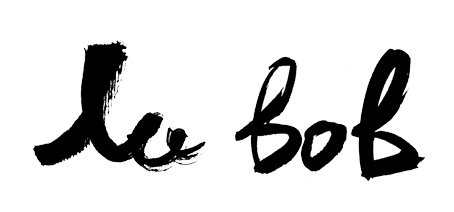by Lee Bob Watson
There are 3 things a songwriter needs: a river, a bible and a broken heart. A river gives you a sense of time and place. A bible is a keeper of language and history. I will speak briefly about the river and the bible. You will find your way to a broken heart well enough on your own.
First, the river calls, "Come … come and listen." The river has existed since before the dawn of time. The river doesn't know your name; doesn't much care who you think you are or where you think you are going. "Drop everything," the river says, "I have plans for you."
The river connects you with something timeless. An archaic language or a master drummer can be your river, showing you things which cannot be transcribed. Embed yourself in a wild patch of earth; take root in an urban corner full of colorful, uncanny characters. Sit with a river and listen. Learn the idioms, the metaphors, the rhythms, the rhymes ... Listen to how the birds talk about shifting events. Enjoy the subtleties of casual conversation and study the signs of real mayhem.
Don't fuss too much. Slow yourself down. Let the river transform the way you live, think and breath. If you can't unplug for a day, a week, 3 months, 3 years, choose another path. If you say, "Man, I don't have time for this," go and do something else.
If you sit with the river long enough, part of its nature will become your nature. Part of the river's fate will become your fate. For the river, you will gladly put your life on the line. It will be impossible for you to remain neutral. From there, the songs will come.
Civilization was born on the banks of rivers. Now, in the 21st Century, we believe we can transcend the source of life; but no song has meaning unless it connects with a primal source of origin. Find your river: it will connect you with deep veins of history and give your songs a multi-dimensional space to live in.
Take notes as you study the river. Write down the best lines, stories, and names you can find. There are a million ways to say, "I Love You." But, how do you say it? Who are the key players involved? What are their stories? What makes the love come alive for the listener?
To ground your work and make it believable, you'll want to develop some sense of perspective, some form of light and shade, some distinct sense of geography and weather: a complete worldview. This is your bible. Notebooks, napkins, an almanac, a codex -- call it what you like -- this is your ground zero, the genesis of all your future songs.
"The Bible" is where you keep the idioms, the motifs, the charged metaphors and battle tested phrases. Fill your bible up with flashes of poetry, sketches, questions, quotations and quotidian. Develop shorthand methods for charting melodies, chord progressions and song forms. Keep a song bouncing around in your mind at all times. Observe and evaluate the lines all day, at school, through traffic jams, in casual conversations, hear the song knocking around like a pebble in the river, waiting to land on a page in your bible.
Indulge. Be wide eyed. Try different voices. Write a song for Billie Holiday or Kurt Cobain to sing. Learn a song off the radio. Make it better. Be ridiculous. Start a thousand naive, little masterpieces.
If you are earnest and adventurous, in time, your distinct voice as a songwriter will emerge. You will have a novel point of view. You will find slightly personal ways of pairing words and melody to get at the heart of some scenario or emotion which couldn't quite be expressed any other way. Then, one quiet morning or late, late at night: Hallelujah! In a frenzy, you will be scribbling down the lines of a damn good song. It will be completely intact. You won't have to change a thing.
The good songs come like a gift from the ether. But I don’t believe they come out of nowhere. They come from the river. They come from all the time you spend listening, recording, reworking bits and pieces and filling up pages in your bible.
A great songwriter casts a spell on the initiated. They welcome the listener into a complete world of their own creation. When Tom Waits sings, "I'm going to love you until the wheels come off," it pushes a perfect, little love song into a singular realm of surreal romanticism which only Waits' can conjure. When Van Morrison sings, "We were born before the wind, also younger than the sun," we are instantly located within the familiar yet enigmatic center of Morrison's blues poetics. From this center, the song opens in widening circles until we are nearly lost, though glady, in the mist. And then, with impeccable timing, "that fog horn whistle blows” to bring us back to the center.
There isn’t enough space to mention all the great writers I hold in high esteem. To stay close to the theme, I think of the many who have written so eloquently of rivers: Langston Hughes, John Lee Hooker, Joni Mitchell, Leonard Cohen and T.S. Eliot to name only a few. As high-water marks of the art, I think of Bob Dylan, who in "Blowing In The Wind" and so many other tunes, has wedded the overtones of the Bible and the American Songbook with a sublime feel for the river. And finally, I think of Sam Cooke, who put these words to a melody with such elegance and power that it forever defies explanation:
I was born by the river in a little tent. And just like that river I've been running ever since. It's been a long, long time coming, but I know, a change gonna come.

